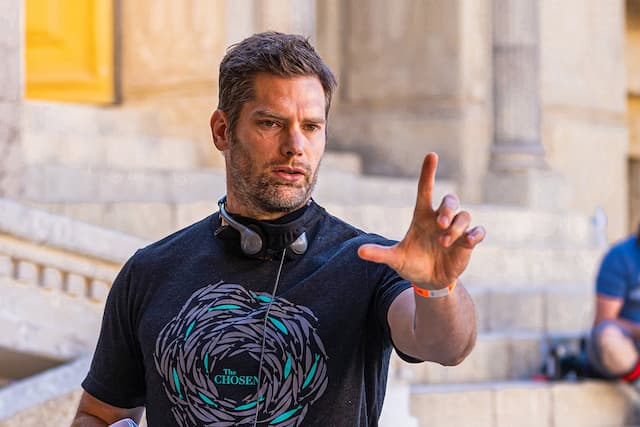How Are Parents to Parent?
Two major areas of life for which many are ill-prepared are marriage and parenting.
Dr. Carl Rogers, well known for his client-centered therapy approach, has observed that “if 50 to 75 percent of Ford or General Motors cars fell apart within the early part of their lifetimes as automobiles, drastic steps would be taken.”
The best minds would be scrutinizing every failure factor, intent to discover not only the components of the problems but also the detailed strategies for a solution.
But what is so surprising about the people who first thought of marriage as an ideal, then experienced an ordeal, and now want a new deal, is that they are so willing to try again.
Undaunted by the enormous risks of failure and the resulting consequences which are then levied, Americans will rush to the altar today with little or no preparation for what they are entering.
Addressing this concern—the lack of relationship skills necessary for marital success—authors Gary Smalley and John Trent note that “the average couple spends more than two hundred hours getting ready for the wedding service and less than three hours in any type of premarital counseling preparation.”
When it comes parenting, same thing! Almost no preparation!
Schools don't provide it. Churches don't provide it.
We spend years acquiring skills for our vocation. But when it comes to family, the bedrock of civilization, no calculator is needed for the time spent—zero, zilch, nada.
Since the Bible furnishes us with principles for all of life, surely we will find instructions for parenting there.
In seeking these instructions, we must begin with goals, since plans are derivative from them. And what better goals can there be than those outcomes Scripture identified to summarize Jesus' early years.
Not much is known about the first thirty years of Jesus' life. We know about his birth at Bethlehem and his visit to the temple at age twelve. Other than that, this period of his life has come to be known as “the silent years”.
There is one verse in Scripture, however, that sets forth God's goals for Jesus' growing-up years. Luke 2:52 says that Jesus increased in wisdom and stature and in favor with God and man.
Let's consider each of these four goals so we can see how they should relate to our parenting today.
First, wisdom. Typically, parents today will be most concerned that their children should do well in school. Too concerned sometimes. They will push, prompt, promote, and even plead in a way that may prove harmful to their child.
Care should be taken not to convey to the child a performance-based approval. Because if a child's sense of self-worth is too connected to his report card, that will be a serious distortion of God's view of the child.
We must keep in mind that there are limits to what a classroom measures. There are many abilities a child may possess that the classroom won't even attempt to validate. Most importantly, it should be understood that education hardly equates with wisdom.
The Roman world into which Jesus was born loved wisdom more than anything else. To them, wisdom was the supreme good, the summum bonum, the end all to end all.
The man able to sift, weigh, and judge ideas was to them the zenith of excellence. They could think of nothing higher and nothing beyond.
Nevertheless, the Lord Jesus, having spent his early years immersed in the Old Testament, was able to see that which was far beyond this world's wisdom—the wisdom that comes from God!
Jesus demonstrated that the spiritual mind, tutored by God's Spirit and set aflame by his revelation, could perceive life's true proportions and inner significances such as intellect could never do, however well tutored in the classroom.
While the wisdom that enchanted Rome is to be desired, the wisdom that enchanted Christ is to be more earnestly desired.
The almost messianic way in which education is regarded today assumes what isn't true—that education is the panacea for society's ills.
When they caught a man stealing from a boxcar on one of John D. Rockefeller's railroad, a junior executive observed: “John D., if we could just educate these people out of their poverty, it would stop this foolishness!”
Rockefeller looked at him and said, “Man, you are out of your mind! You give a good education to a man who is morally corrupt and he’ll not just steal out of one of your boxcars, he'll steal the whole railroad!”
And is this not a lesson which Nazi Germany should have taught us decades before?
The man who ran one of the most vicious detention camps during World War II, where they stripped the skin off of people to make boudoir lamps, was none other than Ilsa Cooke who held PhD's in both Sociology and Psychology.
And did not the Unabomber have an earned doctorate in mathematics?
Education isn't enough!
The ultimate goal, achievable later for which a foundation is needed now, is:
not just information, but revelation;
not just an explanation, but an explosion;
not just facts, but force.
not just bible stories, but a mindset that enables a sustainable, impossible-for-hell-to-stop-victory (Matthew 16:18)—something that no amount of classroom learning could ever provide.
In the second place, Scripture tells us that Jesus also grew in stature. This has to mean more than Jesus added inches and pounds as the years went by. For it additionally stresses (what an over spiritualizing perspective may well ignore) that the developing of one's body is important to God.
For many years in our country, the development of physical strength, good coordination, and athletic ability wasn't viewed as being important for girls. A more enlightened view is being embraced today.
The benefits of physical development contribute so much to mind, character, relationships and enjoyment, and therefore wise parenting won't overlook this. But neither will it overstress this, as do some of those parents of Little Leaguers
Winning, or being the star player, shouldn't necessarily be the goal. Going nuts in the stands, cornering a coach to put your kid in, and turning the air blue when the ump makes a bad call, are not the memories your child needs.
One high school coach gathered his players around him almost like a father encouraging their success, and said, “Boys, if you can't win fairly—win!”
That message should never be given. What should be given is the truth that we are spirit, soul, and body (I Thessalonians 5:23). All three! Each developed with excellence.
The one goal all children can embrace is the avoidance of an overly sedentary lifestyle and the pursuit of their body's healthy development. Believing in healing is commendable, but so is believing in health.
Third, the Bible tells us how Jesus increased in favor with God. But if God is no respecter of persons, where does this idea of growing in favor come in?
Obviously, it doesn't mean that the Father loved Jesus more when he was twelve than when he was six.
Actually, the concept of favor doesn't equate with love at all. Favor means a greater commitment to use, a greater commitment to bless. The Greek word for favor is the same word for grace, and grace refers to added capacity, added ability.
Here, then, we learn that as Jesus grew from infancy to adulthood, he gained anointed abilities and therefore became more and more usable to God.
Holman Hunt has painted a picture of Jesus in his youth. The picture shows the end of another day in the carpenter's shop, where one can tell from the shavings on the ground and the finished chairs in the background that it has been a busy day.
With a look of fatigue on his face, Jesus, standing by the window, stretches his arms in a yawn. This allows the rays of that setting sun to cast a shadow behind him—and the shadow is that of the cross.
There is a sense in which the cross for Jesus didn't come into the picture only at the very end. The cross exerted a controlling influence upon Jesus during his entire earthly life. In Jesus' own words, “for this cause came I into the world.”
The point being: All the wisdom Jesus had acquired, and all the strength he had gained, would have been fuel for nowhere if he hadn't been yielded to God.
The implications of this for our children should be quite clear. We want them to grow up desiring God's favor. We don't want them to build their own little kingdom and carve out their own ego-boosting reputations. We want them to do something significant for eternity.
In the fourth place, we are told that Jesus increased in favor with man—not a back-slapping, joke-swapping, hail-fellow-well-met kind of favor, but a favor that touched lives for good and for God.
D.T. Miles is right: The world is God's interest. To love him, then, means to love whom he loves, the world!
It should be understood that the favor spoken of here is not one that leaves people thinking about us, but one that has others attracted to God.
I am told of a well-known Christian musician who sometimes goes into a rowdy, smoke-filled bar and—when the opportunity presents itself, and with permission from the manager—will begin singing praises to God.
Having gained the attention of the patrons, he'll then give a personal testimony, expressing ever so simply what Jesus has done for him. Then he'll draw a circle on the floor and ask anyone who wants what he's got to step into the circle.
In considerable numbers, right there in the least likely place, many people give their lives to God.
In summary, the four goals of parenting should be these:
First, we want our children not just to do well in school, but to have God's wisdom.
Second, we want our children to appreciate the body God gave by keeping it healthy, strong, and well-coordinated.
Third, we want our children to be so sensitive and surrendered to God's purpose for their life, God will use them in a sacred, significant way.
And fourth, we want our children to impact others with a godly influence in a way that cleverness and charisma could never do.
The statistical likelihood is: Most parents don't have these goals for their own lives. And because they don't, they aren't even thinking about devising parental plans to help their child achieve them.
It is these plans that we will consider in the next post.











